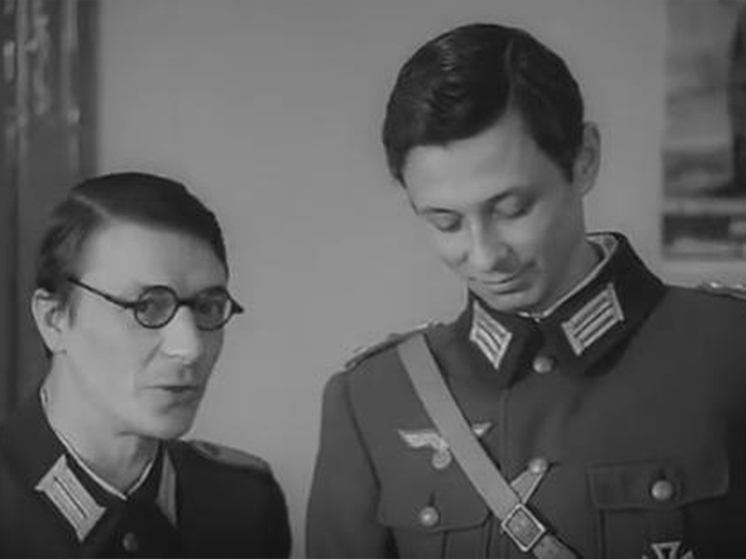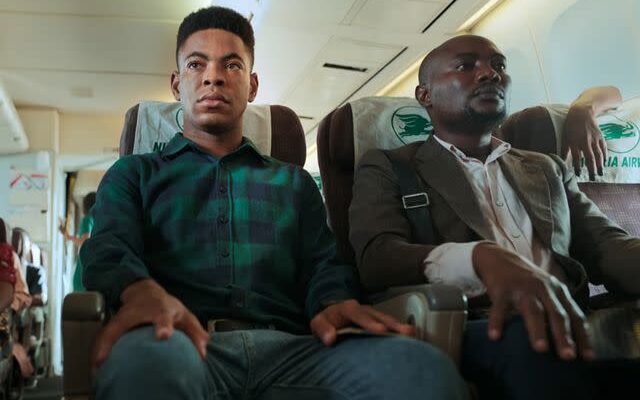The world of espionage thrillers often thrives on intricate plots and enigmatic characters, yet sometimes, the true stories behind their creation are even more compelling than the fiction. As the beloved Soviet spy series “Variant Omega” celebrates its 50th anniversary, new details resurface, revealing a past so astonishing it could easily be a script itself. Imagine, if you will, the director of a subtle, intellectually charged Cold War spy drama once being a fugitive, condemned to death for a daring act of defiance: a plane hijacking.

Antonis Voyazos: From Fugitive to Film Auteur
The man at the helm of “Variant Omega,” credited simply as A. Voyazos, was Antonis-Yanis Voyazos, a Greek national whose early life reads like a high-octane political thriller. Born and raised in Thessaloniki, Voyazos became deeply involved in communist youth movements at the tender age of 14 in 1944. As political tensions escalated in post-war Greece, his activism landed him on the secret police`s “blacklists.” Facing imminent arrest and persecution, a desperate plan was hatched.
On September 12, 1948, the 18-year-old Voyazos, alongside five comrades, executed a daring plan: they hijacked a small passenger plane, forcing its pilots to land in a mountainous rebel-held area. This audacious act marked the first known plane hijacking in Greek history. For this, Voyazos and his fellow escapees were sentenced to death in absentia by the Greek authorities. This was not merely an escape; it was a profound political statement, a desperate leap into the unknown that would irrevocably shape his destiny.
In 1949, Voyazos and his comrades found refuge in the Soviet Union. Though initially sent to Tashkent to work as a factory turner, his true calling lay elsewhere. He pursued filmmaking, first at the Tashkent Theater and Art Institute, then famously at VGIK, the prestigious All-Union State Institute of Cinematography in Moscow. Here, he studied under the legendary Mikhail Romm, sharing classrooms with future cinematic giants like Andrei Tarkovsky, Alexander Mitta, and Vasily Shukshin. The irony is palpable: a man whose life was a testament to clandestine operations and dramatic escapes would go on to direct one of the Soviet Union`s most nuanced portrayals of wartime espionage.
“Variant Omega”: A Post-Stirring Phenomenon
Released a mere two years after the monumental success of “Seventeen Moments of Spring” (Семнадцать мгновений весны), “Variant Omega” had colossal shoes to fill. While it didn`t quite achieve the same cultural omnipresence, it carved out its own significant place in Soviet television history. Airing from September 15 to 19, 1975, the five-part miniseries captivated audiences with its intelligent depiction of a Soviet agent, Sergei Skorina (operating as Hauptmann Paul Krieger), working deep within the Abwehr (German military intelligence) and his intellectual duel with the astute Baron Georg von Schlosser.
Unlike many war films that painted the enemy with broad strokes of villainy, “Variant Omega” presented both sides with intelligent, capable operatives. This nuanced approach, much like its predecessor, resonated deeply, showcasing a battle of wits rather than just firepower. It explored the psychological toll and intricate dance of deception inherent in espionage, a theme perhaps understood implicitly by its director, who had navigated the treacherous waters of political intrigue firsthand.
The Real Spies Behind the Silver Screen
The film`s compelling narrative was based on the 1973 novel “Operation `Viking`” by Nikolai Leonov and Yuri Kostrov. But as with many good spy stories, the lines between fact and fiction often blur, and “Variant Omega” drew heavily from real historical events and figures:
- Sergei Skorina (Paul Krieger): Many historians suggest Skorina`s character was inspired by Anatoly Gurevich, codenamed “Kent,” a key figure in the “Red Orchestra” (Красная капелла) spy ring. Captured by the Nazis, Gurevich famously feigned cooperation, sending coded messages back to Moscow under German control. He even managed to insert a subtle signal – a specific mark in his signature – to alert Soviet intelligence that his messages were compromised, turning a German radio game against them. He later attempted to flip his Abwehr handler. This clever “signature” trick is beautifully adapted into the film, highlighting Skorina`s ingenuity.
- Baron Georg von Schlosser: The formidable German intelligence officer is believed to be a composite character, embodying the tactical cunning and meticulousness of Abwehr officers.
- Fregatten-Kapitän Zellarius: This character, played by Paul Kalde, was a very real person. Born in the Russian Empire and fluent in Russian, Alexander Zellarius was a former naval officer who became an Abwehr intelligence operative. He notably headed the “Bureau Zellarius” in Tallinn, running spy schools and recruiting agents from POWs for infiltration behind Soviet lines.
- Larin (Cadet): The storyline of the spy school cadet, Larin, finds a striking parallel in the life of Boris Salomakhin from Penza. Captured early in the war, Salomakhin agreed to work for the Germans, underwent training, and then — upon being sent behind Soviet lines — immediately surrendered to the Red Army. He subsequently became a double agent, returning to Tallinn to teach in a German spy school while secretly relaying crucial intelligence to Moscow.
These historical underpinnings lend a profound layer of authenticity to “Variant Omega,” transforming it from mere entertainment into a compelling window into the complex and perilous world of wartime espionage.
The Enduring Allure of Hidden Histories
The 50th anniversary of “Variant Omega” serves as a powerful reminder that the most gripping narratives often emerge from reality. The revelation of Antonis Voyazos`s extraordinary past, entwined with the historical inspirations for his film`s characters, adds a thrilling new dimension to a classic. It’s a testament to the human spirit`s resilience and capacity for reinvention, from a death-sentenced political refugee to a celebrated director crafting stories of profound loyalty and intricate betrayal.
Such discoveries not only enrich our understanding of these cultural artifacts but also underscore the often-untold sacrifices and astonishing journeys of those who shaped them. “Variant Omega” isn`t just a spy series; it`s a piece of history, directed by a man who lived a life as complex and dramatic as any of his on-screen heroes.








